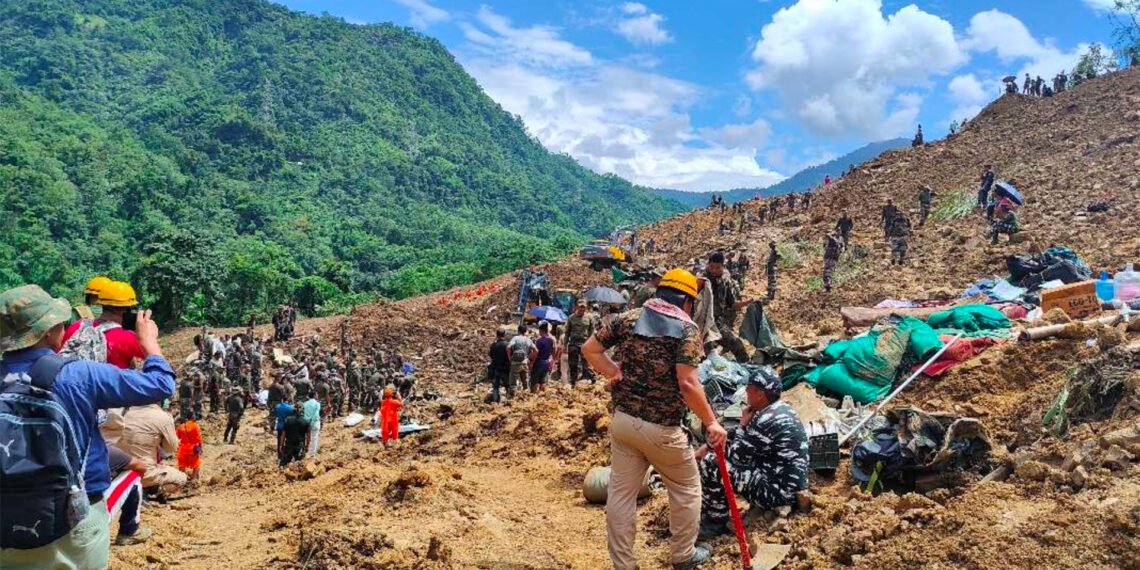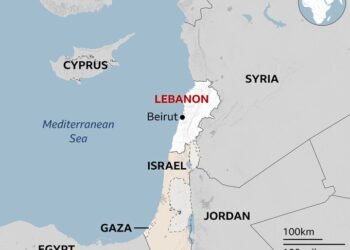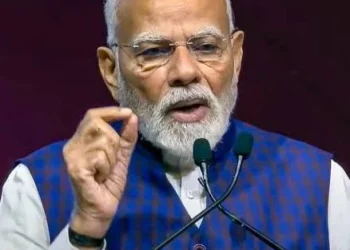Editor’s Note: As part of our ongoing commitment to serve as an advocacy platform for peace in Manipur, we continue to welcome “opinion” pieces from all communities. We encourage individuals to use this space to express their perspectives with sincerity and responsibility. We urge contributors to refrain from language that could be interpreted as inciting violence or hatred. In line with this initiative, we present a write-up by Dr, By Dr. Chinkholal Thangsing, Convenor, The Airport Appeal Committee, and President, Lamka City of Hope. Please mail your write-up at: novinkn@gmail.com. Thank you, Navin Upadhyay
By Dr. Chinkholal Thangsing
Since May 3, 2023, the Kuki-Zo people of Manipur’s hill districts have been completely cut off from their state’s sole functional air gateway—Bir Tikendrajit International Airport in Imphal. What was once a routine one-hour drive from Lamka (Churachandpur) or Kangpokpi to the state capital has become a perilous, politically segregated ordeal. This is no longer merely a question of connectivity—it is a question of survival, of equal citizenship, and of whether the Indian Republic truly includes all its people.
In the wake of targeted ethnic violence, Kuki-Zo residents—despite being full citizens of India—can no longer travel safely through Imphal. Roads that once linked communities are now marked by fear, hostility, and enforced separation. As a result, Kuki-Zo patients in critical need of medical evacuation, students pursuing higher education, government servants, and ordinary families must undertake punishing journeys—over 18 hours to Lengpui Airport in Mizoram or six hours to Dimapur Airport in Nagaland—through treacherous mountain terrain vulnerable to landslides, floods, and insurgency threats.
This is not just an inconvenience. It is a slow-burning humanitarian emergency, a crisis of governance, and a glaring symbol of a fractured state. A simple domestic commute, once taken for granted, has been transformed into a test of endurance, resilience, and exclusion.
The situation is a sobering indictment of the State’s failure to guarantee safe access to essential infrastructure. It raises urgent questions about the nature of national unity, the meaning of citizenship, and the cost of silence in the face of suffering.
When Neglect Becomes a Death Sentence
As the third year of this enforced isolation approaches, the cost of silence has been staggering—measured not in statistics, but in lives lost, dreams buried, and dignity denied.
Every single day, vulnerable Indian citizens in Kuki Zo dominated hill districts are paying the ultimate price—not due to war, natural calamity, or lack of will—but due to state-level inaction and central neglect. These deaths are not caused by bullets, but by bureaucracy. Not by lack of medicine, but by a total lack of access to infrastructure that should be theirs by right.
Elderly patients suffering strokes and cardiac arrests, who could be stabilized with timely tertiary care, are now left to deteriorate in the district hospitals. The people enduring punishing 12–18-hour road journeys through rain, mudslides, and mountainous terrain—many do not survive the trip. Cancer patients scheduled for chemotherapy are missing cycles, and with that, their hope of remission. Young trauma victims from road accidents or assault—injuries that are treatable in the golden hour—are dying preventable deaths because an airport, barely a hundred kilometers away, is politically and communally inaccessible.
This is not just a medical crisis. It is a moral failure. It is a collapse of governance in the most fundamental sense—a breakdown in the state’s ability to protect, serve, and respond to all its citizens equally.
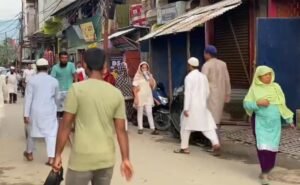 READ: Analysis: Abdul Kadir and the Cost of Being Muslim in Manipur
READ: Analysis: Abdul Kadir and the Cost of Being Muslim in Manipur
We must ask ourselves: how many more funerals will it take before policy turns into action? How many children must die in the backseat of a speeding vehicle while trying to cross three state borders to reach help? How long will the government allow an entire population to be treated as if they live outside the boundaries of national concern? This continued exclusion is not a byproduct of logistical difficulty—it is a result of political inertia and selective attention. And it is killing people.
Nearly three years on, the cost is no longer hidden. It is written across the hills of Manipur in broken families, orphaned children, untreated illnesses, and a deepening despair that no Indian citizen should be forced to endure. India has the resources. It has the engineers. It has built airports in border regions, deserts, islands, and post-disaster zones. What is missing is not the capacity—it is the commitment.
This is why the call for an airport in the Kuki Zo inhabited areas is not just about infrastructure. It is about life. It is about equal access to survival. And every day that passes without action is another day that justice is denied—not just in courtrooms, but in hospital wards, delivery rooms, and emergency vehicles stalled on treacherous mountain roads.
The longer this continues, the more undeniable it becomes: neglect is no longer passive. It is lethal.
READ: 80,000 Voices for 80 Years: Global Tribute to Aung San Suu Kyi Breaks Records
Even in Death, the Divide Remains
The tragedy of Air India Flight 171 was more than just a fatal accident—it became a painful symbol of Manipur’s deep and irreparable fracture. Two promising young women, one a Kuki-Zo named Lamnunthem Singson and the other a Meitei, perished aboard the same flight. Yet, in death, even their return home laid bare the division: one body had to be flown to Dimapur in Nagaland and transported by road to Kangpokpi; the other was received directly at Imphal Airport.
This was not merely a logistical necessity—it was a grim reflection of a reality no longer deniable. In today’s Manipur, even in mourning, there is no common ground, no shared passage. Where once communities lived side by side, today, the movement of the living—and the final journey of the dead—must follow separate, ethnically dictated routes.
This is not an isolated incident. It reflects the lived experience of the Kuki-Zo people since May 2023. Nearly three years have passed since they were effectively cut off from Imphal. The capital, its airport, and the services it provides are no longer accessible—not physically, not socially, and not politically. Accessing essential infrastructure has become a dangerous gamble with life.
The hope of reunification, of once again living as one people under one functional state, has faded in to almost an oblivion. The divide has solidified. Trust has eroded. Reconciliation may remain a long-term goal, but the present demands a clear-eyed, immediate response to the irreversible ground reality.
And the reality is this: the Kuki-Zo people cannot wait for peace talks or political settlements to regain access to basic rights. Their children are dying en route to distant hospitals. The sick, the young needing special and complex medical care and services are dying out on mountain roads. Students are forgoing opportunity, elders are denied dignity, and grieving families are forced to transport their dead through state borders—because no safe route exists through their own. This is why the demand for a dedicated airport for the Kuki Zo people is not just reasonable—it is essential. It is not a political gesture. It is not a reward. It is a humanitarian necessity.
An airport in Lamka (Churachandpur) is the only viable solution to restore mobility, ensure timely medical evacuation, and reconnect an entire population with the rest of their country. It is a declaration that no Indian citizen should be left behind due to ethnicity, geography, or conflict.
If we cannot even share the skies in death, let us at least secure the right to fly in life.
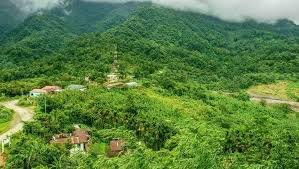
READ: Adani Cement Project Under Fire in Assam over Tribal Land Allocation
A Deafening Silence from Delhi
Since December 2023, the Airport Appeal Committee—backed by ten elected Kuki-Zo MLAs and major tribal civil society organizations, including the Indigenous Tribal Leaders’ Forum (ITLF), Zo United, and the Manipur Tribal Forum Delhi—has submitted multiple formal memoranda to the Ministry of Civil Aviation. Detailed appeals have been made, documents furnished, and all diplomatic and administrative channels diligently pursued. Yet, there has been no tangible response—no inquiry, no commitment, no action.
This silence can no longer be dismissed as bureaucratic delay. It is a political statement. One that sends a chilling message to an entire community: that their citizenship is conditional, their lives expendable, and their suffering unworthy of acknowledgement.
India Acts Fast—Elsewhere
When disasters strike—whether in floodplains, conflict zones, earthquake-hit regions, or remote border outposts—India has consistently shown the capacity to respond with speed and resolve. Airports and helipads have been constructed in weeks. Temporary bridges have been laid in days. Relief camps and medical corridors have been mobilized overnight when national interest, political optics, or strategic concerns demanded urgency.
Why then, has two years have passed since formal appeals were made—backed by ten elected MLAs, civil society groups, and humanitarian voices—for the construction of an airport in Manipur’s hill districts, with not even a feasibility study initiated? Why does the urgency shown in other crises vanish when it comes to the plight of the Kuki-Zo?
This is not administrative delay—it is political indifference. This is not oversight—it is exclusion by design.
The Centre’s continued silence, in the face of repeated memoranda, committee formations, and escalating human cost, cannot be brushed aside as bureaucratic backlog. It reveals a disturbing truth: that the suffering of the Kuki-Zo does not trigger the same urgency as other national emergencies. That their cries do not resonate as loudly in the corridors of power. That perhaps, in the eyes of the state, their hardship is inconvenient—but not important.
But is national interest not served by saving Indian lives? Is it not a matter of internal security to ensure that entire communities are not alienated by abandonment? Is it not a constitutional duty to guarantee equitable access to mobility, healthcare, and infrastructure—regardless of ethnicity?
The failure to act has only increased the hardship. It has hardened the sense of exclusion and deepened the divide. In failing to build a lifeline, the government is not just neglecting a region—it is complicit in the prolonged suffering of its people.
India has done more, in far more difficult terrain, with far less provocation. The only thing lacking here is the political will to treat the Kuki-Zo with the same urgency, dignity, and care as other citizens of the Republic.
This Is a Constitutional Imperative: A just and strategic Solution:
The continued denial of airport access—and the delay in sanctioning a new airport for the Kuki Zo inhabited areas who are unable to access India’s airport in the current state —sends a dangerous message: that citizenship, and its rights, are contingent, selective, and negotiable. This is not a regional grievance. It is a constitutional failure. Article 21 guarantees the right to life. Article 15 prohibits discrimination. Article 19 ensures freedom of movement. When an entire community is unable to access basic healthcare or public infrastructure due to ethnicity and location, we are not witnessing a mere lapse—we are witnessing the erosion of constitutional citizenship.
The demand for a centrally funded regional airport —serving Lamka, Kangpokpi, and surrounding areas—is not simply a matter of development. It is a moral imperative and a strategic necessity. Such an airport would do more than restore mobility; it would save lives, revive economic prospects, ensure timely access to healthcare and education, and reaffirm the ideals of national unity and inclusive governance.
This is not a difficult undertaking for a country that has built airstrips in deserts, flood zones, and border regions within weeks when compelled by national interest. What is needed here is not more feasibility studies—it is political will. Infrastructure is not just about concrete, steel, or tarmac. It is about dignity, inclusion, and the lived experience of citizenship. It is a tangible expression of who is seen, who is heard, and who is allowed to thrive.
We, the Kuki-Zo people, are not asking for charity—we are demanding what is rightfully ours: access, equity, and recognition as equal citizens of this great nation. We are not a fringe community—we are part of India’s diverse, resilient, and vibrant social fabric. And we deserve access not only to the skies, but to justice, opportunity, and belonging.
The time for symbolic assurances has passed. This is the moment for decisive action—not tomorrow, not after the next tragedy, but now.
Let the runway to justice begin with one bold decision: build the airport.
(The author is Convenor, The Airport Appeal Committee, and ; President, Lamka City of Hope)



